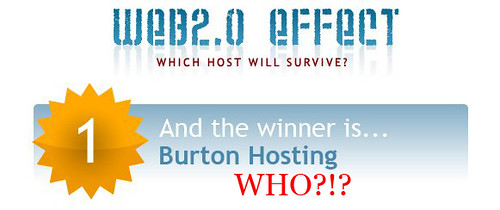 Since I’m covering a lot more of the latest news lately, I noticed yesterday that there is proposed legislation that will possibly anonymize domain registration information. The reason? Spam. Spammers are apparently accessing WHOIS information and using this information to send individuals unsolicited messages. The proposed legislation would allow “domain name registrants would be able to list third-party contact information in place of their own.”
Since I’m covering a lot more of the latest news lately, I noticed yesterday that there is proposed legislation that will possibly anonymize domain registration information. The reason? Spam. Spammers are apparently accessing WHOIS information and using this information to send individuals unsolicited messages. The proposed legislation would allow “domain name registrants would be able to list third-party contact information in place of their own.”
Note that I emphasized “apparently.” While I’ve seen this practice happen in the past in minute amounts, I’m pretty confident that spammers are not using the WHOIS database for the kind of spam that plagues our everyday lives. Spammers have bots that crawl regular SERPs for that. Furthermore, most WHOIS query databases have limitations on the number of domains you can look up in any given time.
Additionally, once your email address is out there, it’s out there. Perhaps, if you choose to hide it later, it won’t be accessed by new generation spammers (unless they buy an old list), but people will have those email addresses until you change to a new one (and protect that new one). The only spam I’ve received related to any domain names I’ve owned are from domain “hijacker” companies, like DROA (the Domain Registry of America), companies who think it’s perfectly fine to con users into believing that their domain is about to expire — so let’s go renew it with another registrar — me! (Do I sound frustrated?)
Do I think this law, if passed, will help in the long run? No, I do not. In fact, the article even mentions the kind of people whose work would be negatively impacted by the new legislation:
Today, the Whois database is used for much more. Law-enforcement officials and Internet service providers use it to fight fraud and hacking. Lawyers depend on it to chase trademark and copyright violators. Journalists rely on it to reach Web site owners. And spammers mine it to send junk mailings for Web site hosting and other services.
Did somebody mention trademark and copyright violators? Does anybody see a connection?
I’ve been in those shoes before. Finding the identities of individuals has been extremely important for the documents I used to compile. The first part of the aforementioned statement is very true. I’m not sure I can say the same about data mining. What I see is this: this is a proposed law that will make it more difficult for people to reach each other, just because a few spammers are apparently making people’s lives miserable. There are plenty of ways to work around spam and there are plenty of spam-blocking applications. Instead of hitting spammers directly, the law will, in actuality, affect people who use WHOIS for legitimate purposes.
If people were overly concerned about the publicity of the WHOIS information, there are currently plenty of ways to protect your domain name information without requiring a law that will be an obstacle for the innocent. You can purchase an additional Domains by Proxy registration with your domain, or you can simply register a domain through NameCheap (my personal registrar of choice) and a one-year WhoisGuard subscription comes for free. The exception to the rule would be the .us TLD, which, by law, needs to be registered to a United States citizen who cannot hide his/her information.
All of this — spam solutions aplenty and domain registration protection services — shows that there are many ways to deal with the “spam” issue. Apparently, it is the people who are not acknowledging it.
I totally understand the other side of this argument too. However, it comes down to the same thing: restricting this information even further will punish a lot of people just because a few people are suspected of partaking in completely illegal schemes to acquire information that they should not be privy to. Lawmakers: deal with the spammers, but don’t let others suffer.
[Photo: Locks]



